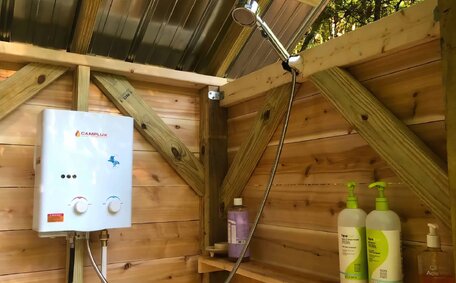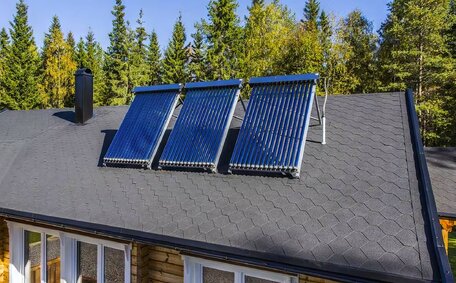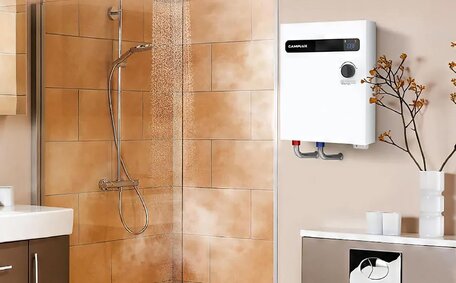Introduction to Gas Line Safety
Regular inspection and maintenance of gas lines are essential for the safety of Cranebrook homes. Our licensed plumbing services, including gas line inspections and repairs, ensure safety and compliance, preventing gas leaks.
As expert plumber gas specialists serving Sydney, Cranebrook Plumbing emphasises that natural gas line problems can lead to dangerous leaks, fires and explosions if left unchecked.
Natural gas systems utilise mercaptan, which emits a distinct odour to signal a leak, aiding in early detection. If you can smell rotten eggs or sulphur signaling a leak, it is crucial to promptly shut off your gas and seek professional help. If you detect this odour, immediately shut off your gas appliances and seek prompt assistance from your gas provider or Cranebrook Plumbing.
We’re available 24/7 for emergency leak calls.
Federal and state legislation mandates annual professional safety inspections of your entire gas system.
We’ll address any issues during inspection your plumbing system to keep your family safe.
When Do Gas Lines Legally Need Inspection?
Australian gas safety standards stipulate that licensed professionals must inspect buried gas lines in Cranebrook homes at least once every 3 years. This ensures early detection of gas leaks, corrosion, and other potentially hazardous problems. Only qualified licensed professionals can conduct gas safety compliance inspections legally.
Our team, which includes a certified gas inspector, expert Cranebrook plumbers and gas fitters, meets all legal qualifications to perform thorough gas line inspections on your property. We meticulously examine these components, including all valves and regulators, ensuring that gas piping meets specifications, fittings are tight, appliances are properly installed, and no leaks or other issues are present.
Contact Cranebrook Plumbing for guidance on gas line concerns or to understand legal inspection requirements. We’re available 24/7 to schedule inspections or repairs to ensure the continued safety and proper functioning of your home’s gas system.
Homeowner vs Professional Inspection Responsibilities
Homeowners using gas should be familiar with the routing of gas lines and carry out basic inspections regularly. This involves utilising your senses to monitor appliances, particularly those for gas heating, for any peculiar odours or sounds, and to check your system visually for signs of damage or corrosion. Handheld detectors for carbon monoxide and other gases can also be useful for do-it-yourself monitoring.
Regulations mandate that a licensed gas fitter must inspect gas lines and appliances at minimum every 3 years. Cranebrook Plumbing technicians utilise specialised leak detection equipment, such as pressure gauges and pipe cameras, to conduct an in-depth analysis of your gas system.
We perform a thorough check gas piping is up to code, fittings are tight, appliances are properly installed, and no leaks, blockages or other safety issues exist. Professional inspections also ensure that any problems with appliances your home relies on, including wear and tear, are properly repaired for reliable, continued service.
Don’t hesitate to book gas line inspections with Cranebrook Plumbing or contact us for urgent gas line repair. As seasoned professionals, our prime focus is to boost the safety of your Cranebrook homes through compliant and comprehensive gas servicing.
Recommended Gas Line Inspection Frequency
As homeowners, performing a visual inspection of pipes, fittings, flex connectors and valves monthly is a prudent safety measure. Do your own basic gas safety checks including using your nose to sniff for possible gas leaks and ears to listen for any hissing sounds. It’s best to have all gas lines professionally inspected annually should you smell gas or if your system requires maintenance.
Industry standards advise that your gas system should undergo a safety check by a qualified fitter at least once every 3 years. More frequent inspections are advisable for households that heavily use water heaters and gas hot water systems. This includes homes that use gas-fuelled conveniences such as gas stoves, efficient hot water systems, multiple gas fireplaces, and outdoor kitchens or heating.
Annual professional inspections are key for early detection and prompt repair of leaks, damage, and compliance deviations. At Cranebrook Plumbing, our gas line inspection service utilises the latest methods and tools to thoroughly analyse your system. Feel free to get in touch at any time to schedule your gas line inspection appointment or necessary repairs.
Warning Signs of a Gas Line Problem
Several warning signs can indicate problems with your gas lines. Being aware and acting quickly is critical for safety.
The most notable indicator is a strong sulphur or rotten egg smell coming from your gas appliances or lines. This likely signals a dangerous gas leak. Other signs include hearing an unusual hissing or whistling sound from pipes or appliances.
You may also notice unexplained moist patches, dead vegetation or browning grass above buried gas line locations outdoors. Indoors, bubbling in standing water can signify a leak.
Additional gas line problems often manifest as pilot lights frequently blowing out, appliances not igniting or unusually high gas bills. If these warning indicators are noted, your gas line should be evaluated for immediate safety precautions.
Cranebrook Plumbing offers comprehensive gas line servicing to address potential issues. Our experts utilise specialised leak detection tools and visual inspections to ensure safety and compliance for Cranebrook homes. Contact us anytime for urgent repairs or scheduled maintenance.
Preventative Measures for Gas Line Maintenance
There are several preventative measures Cranebrook homeowners can take to maintain gas line integrity and reduce safety risks:
- Install earthquake-sensitive automatic gas shut-off valves on your appliance gas line metres.
- Have underground gas pipes buried at the proper depth per code to avoid damage.
- Keep in mind that your gas can require routine visual inspections monthly to check for leaks, corrosion, cracking or loose fittings.
- Trim vegetation away from outdoor gas lines to prevent root damage.
- Consider installing excess flow valves to shut off high-volume leaks.
- Regular servicing and maintenance of all gas appliance components are vital for their proper functioning and safety.
- Should any issues arise, contacting our team of qualified experts at Cranebrook Plumbing immediately for repairs is advised.
Being proactive by maintaining gas lines and practices greatly reduces the risk of dangerous leaks, fires, and explosions. Our team assists with your home business gas systems in Cranebrook, ensuring its safety, reliability, and compliance through scheduled inspections, repairs, and installation services.
What Does a Professional Gas Line Inspection Entail?
A professional gas line inspection by qualified technicians ensures your gas supply is managed safely and comprehensively. Our gas installation processes strictly adhere to Australian gas fitting regulations and codes to ensure safety.
Our inspections include comprehensive leak detection tests with high-pressure gauges, electronic sensors, and gas detectors. Tracer gas and special cameras should also be used to check all pipes and fittings. We ensure gas system materials meet legal specifications.
We test appliance connections and heating air supply, and ensure your gas meter operates accurately while assessing for wear, damage, or any improper installations. Gas meters, valves and safety devices are checked for correct operation. We perform detailed inspections and issue compliance certificates upon confirming the absence of leaks, corrosion, and other defects.
As Cranebrook’s trusted local provider, should you need gas line safety inspections and repairs we utilise the latest methods and tools. We take all precautions to protect your family by providing comprehensive gas service, fully analysing your gas system to legal standards. Contact us anytime to schedule certified servicing.
What To Do If a Gas Leak is Suspected
If you detect the rotten egg smell of natural gas or hear hissing from pipes, immediate action is vital. Follow these steps for safety:
- Evacuate everyone from the area of the suspected leak and move upwind.
- Do not use phones, turn lights on/off or do anything to make sparks.
- Call 000 from a safe location to report the leak.
- Contact Cranebrook Plumbing on 1300 349 338 for urgent assistance.
- Do not re-enter the property until emergency services declare it safe, and remember to call gas experts like Cranebrook Plumbing.
As Cranebrook’s trusted local plumbing experts, we are available 24/7 to respond if you suspect a dangerous gas leak. Our technicians use specialised leak detection equipment and repair methods to quickly resolve issues and ensure safety compliance.
In any gas leak situation, it’s critical to evacuate immediately and check whether professional help is needed. Please don’t hesitate to call our team for urgent repairs day or night.
When To Repair vs Replace Gas Lines
Deciding whether gas infrastructure should be repaired or replaced depends on several key factors. As Cranebrook’s trusted local experts, our plumbers evaluate:
- The age and material of your current pipes
- The extent of damage like leaks or corrosion
- Frequency of required repairs
- Safety risks and compliance issues
- Replacement costs versus projected repair expenses
In general, minor isolated leaks in newer metallic pipes may be repaired. But for older steel lines prone to cracking or seals wearing out, installing new gas pipes is the safer choice to prevent dangerous leaks.
Our technicians ensure due diligence during gas inspections and have the necessary inspection done, protecting your house with assessments made using the latest methods. We’ll advise if repairs or replacement are most sensible based on leak risks, functionality, legal standards and cost. Trust Cranebrook Plumbing’s expertise to keep your gas system safe.






